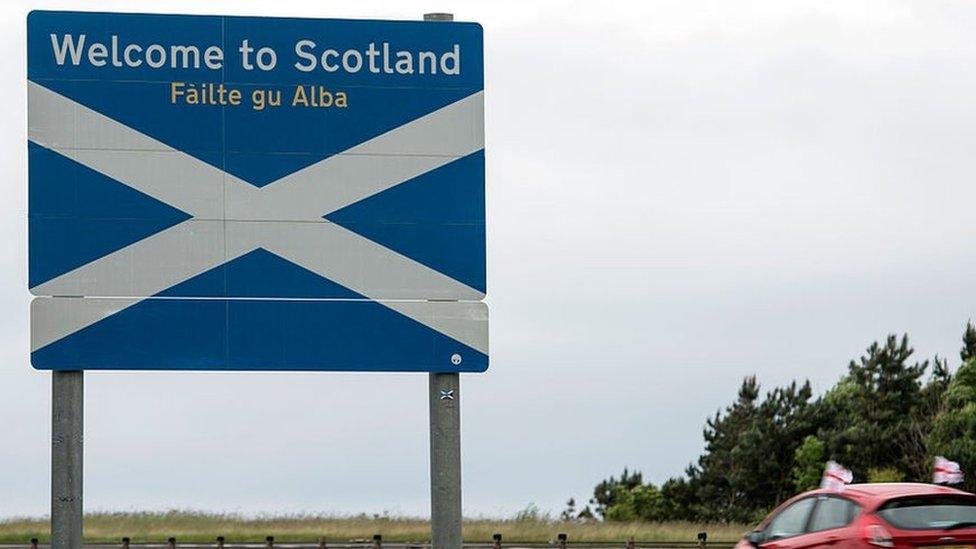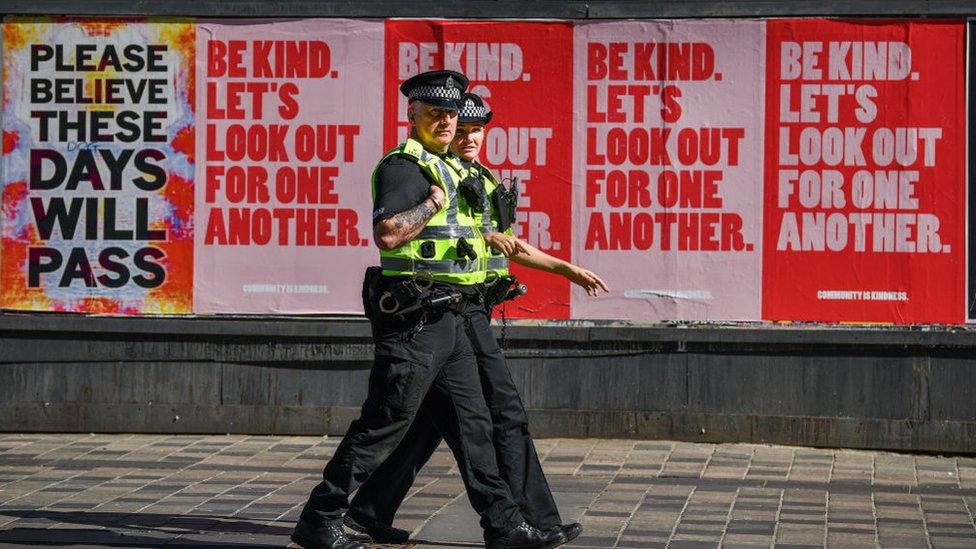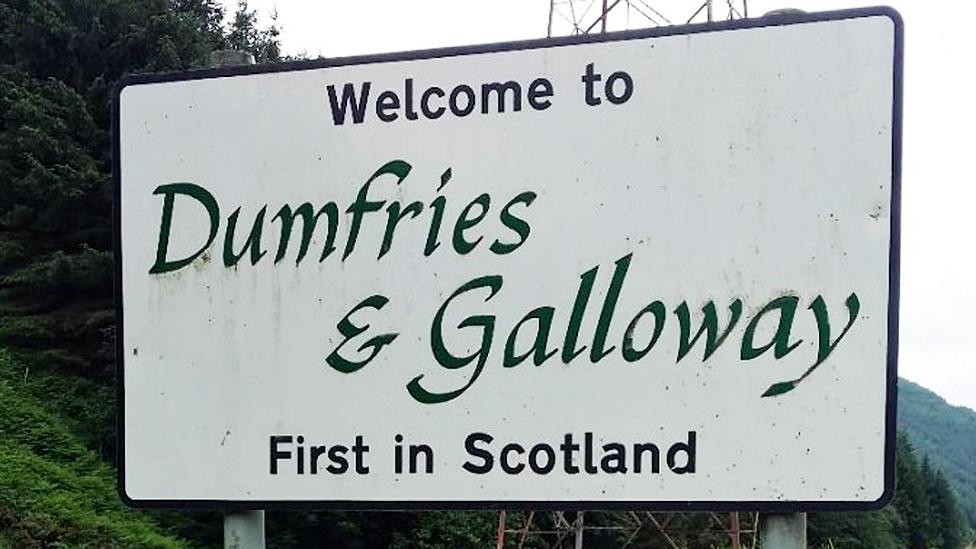Coronavirus: Non-essential trips to Scotland 'could break law'
- Published
- comments
Coronavirus: ‘It’s getting harder but let’s keep supporting each other’
People who travel to Scotland for anything other than essential purposes are "potentially in breach of the law", Nicola Sturgeon has said.
The Scottish first minster said there was no need for "confusion", even as different lockdown rules come into effect in different parts of the UK.
Boris Johnson has urged more people to return to work as part of a plan to gradually ease restrictions in England.
But Ms Sturgeon said that in Scotland, "lockdown remains in place for now".
She said: "If you are in Scotland, then the law in Scotland applies - and the law says that just now you can only be out of your own home for essential reasons."
And she stressed that "it is not OK to drive into Scotland to beauty spots to visit places and for leisure".
The prime minister is to set out further details about his "roadmap" towards lifting the virus lockdown later on Monday, having unveiled the "first careful steps" in a television address on Sunday evening.
He said people in England who cannot work from home should start to return to the workplace, while rules around outdoor exercise and recreation are to be eased.
Ms Sturgeon said the law and guidance in Scotland had not changed, and said: "I would hope all employers would respect that."
In a televised statement on Monday evening, she added that restrictions would "gradually" be relaxed as the infection rate falls - but said it was "vital" to do this carefully so as not to "jeopardise" progress made so far.

Nicola Sturgeon urged people in England not to travel to Scottish beauty spots
While people are now allowed to go out more than once a day for exercise, Scots are still expected to stay at home other than for essential work, to buy food or medicine, or for exercise.
At her daily media briefing, the first minister was asked about people who live near the border with England.
She said: "If you live in the Scottish Borders and you come across the border to go to the supermarket, you would certainly not be breaking the law if you were getting food, that's an essential purpose.
"If you live just south of the border and you work in an essential job then equally that is perfectly legitimate.
"But if you are coming to Scotland and are not covered by those essential purposes, then you potentially would be in breach of the law."
'Respect the rules'
Ms Sturgeon added: "If you live in Scotland right now and you're not working at the moment, or working from home, then my advice is you should continue with that right now. We are not encouraging more people to go back to work right at the minute."
The first minister said she did not think there was any plan or need for "increased policing" at the border, but warned people in England not to travel to Scottish beauty spots for recreation.
The UK government's guidance paper, external for people in England states: "When travelling to outdoor spaces, it is important that people respect the rules in Scotland, Wales and Northern Ireland and do not travel to different parts of the UK where their intended activities there would be prohibited by legislation passed by the relevant devolved administration."


The four nations of the UK will not leave lockdown in lockstep as the UK government had wanted.
Instead, Boris Johnson has decided to set the pace in England, accepting that Scotland, Wales and Northern Ireland will proceed at the speeds their devolved governments judge is right.
There were lots of questions for Nicola Sturgeon today about the science behind these different approaches and the practical difficulties divergence might cause.
But I thought one of her most interesting answers stressed a continuing search for convergence and clarity in what could become an increasingly confusing situation.
The first minister said she was "very open" to considering the UK government's proposals for England with an interest in adopting the same "system of phasing" for lifting lockdown, if not the same timetable.
Separately, the Scottish Secretary Alister Jack has told me he hopes that as Scotland continues to suppress coronavirus it might be able to "catch up" with the dates pencilled in for England.
Getting all the governments of the UK to agree on everything has not proved possible - but attempts to coordinate between the four nations have not been abandoned.


The UK government has accepted that there could be "modest divergences" as "different parts of the UK move at slightly different speeds".
Foreign Secretary Dominic Raab told BBC Scotland that "we will see different nations move at slightly different speeds, and that's reflective of the fact that the prevalence and the transmission rate of the virus is at different stages in different parts of the UK".
Ms Sturgeon also said the fact that Scotland could be on a "slightly different timeline" to the rest of the UK was not "for any political reason".
She said it was because "the Scottish government is not yet confident that these changes can be made safely in Scotland yet, without running the risk of the virus potentially running out of control again".
The first minister said the rate at which the virus was spreading - the "R number" - was still "slightly higher in Scotland than the rest of the UK on average", justifying differing approaches.
She said: "Moving at different speeds in different parts of the UK, for good evidence based reasons, need not be a cause for confusion.
"Confusion only arises if we as politicians, and the media who report on us, are either unclear in what we are asking people to do, or if we give a misleading impression, even by omission, that decisions that apply to one nation only are actually UK-wide."
- Published11 May 2020

- Published19 May 2020
